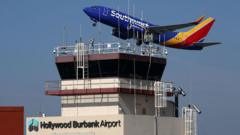Air Canada flight attendants made headlines last week when they initiated a strike with a powerful message: "Unpaid work won't fly." This slogan was aimed at the long-standing industry practice of not compensating flight crew for ground work—a concern that has generated increasing attention in North America. Many travelers were surprised to learn that unlike some European airlines, where monthly salaries are standard, Canadian carriers often do not pay for necessary pre-flight duties, including boarding.
The strike, which occurred during the height of the summer travel season, was ultimately resolved when a tentative agreement was reached between Air Canada and the Canadian Union for Public Employees (CUPE). While the full details of the agreement have yet to be disclosed, insiders have revealed it includes a pay increase over the coming years, as well as partial compensation for ground-based duties, a significant breakthrough in North American aviation. This development sparked hopes for a more equitable pay structure for cabin crew across the continent, with the union declaring the end of unpaid ground work.
Despite the positive announcement, many flight attendants remain skeptical about the deal, which requires their approval. Reports indicate that dissatisfaction persists, highlighting the precarious nature of labor negotiations in the industry. For decades, North American flight attendants have navigated the issue of unpaid work, with some estimating they perform around 40 hours of unpaid duties monthly.
This practice isn’t confined to Air Canada; employees of other Canadian airlines like Air Transat and WestJet, as well as US-based United Airlines, lack similar compensation for ground work. The recent shift in attitudes towards ground pay has been partly triggered by new safety protocols instituted during the COVID-19 pandemic, which have made the duties of cabin crew more complex.
Delta Airlines recently became the first North American airline to implement pay for ground work. Following in their wake, American Airlines and Alaska Airlines adopted similar practices. With Air Canada returning to negotiations and setting a new benchmark for compensation, observers expect other airlines and unions to follow suit.
However, there are still concerns about the future of this agreement as workers express dissatisfaction with aspects including entry-level wages. Labor experts indicate the conversation around ground pay is far from over and hint that ongoing negotiations at Air Transat and WestJet could result in significant changes across the industry.
In terms of broader labor rights, the outcome of the Air Canada strike is seen as a pivotal moment in Canada. Such public support for the issue of unpaid labor indicates an evolving societal attitude that may influence future negotiations in the aviation sector and beyond. Labor experts commend the union's strategy, suggesting that their stand against an imposed back-to-work order demonstrates the collective power of workers seeking just compensation for all hours worked.






















